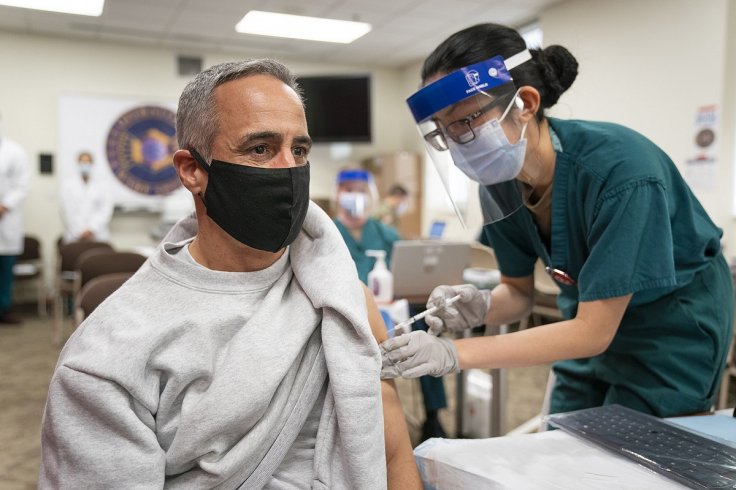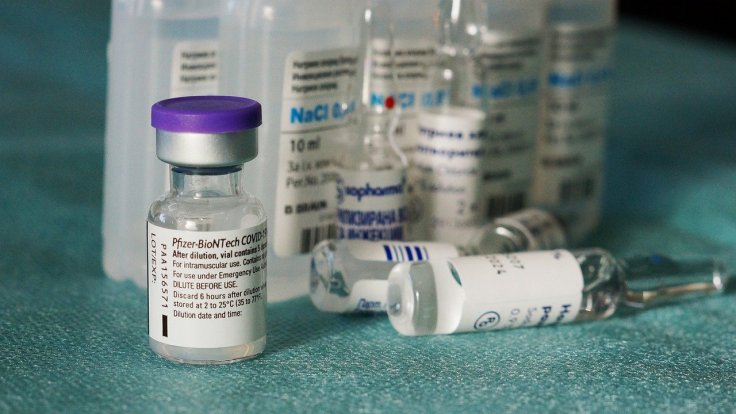With the COVID-19 vaccines rolling out slowly in countries across the world, many are wondering whether the jabs will prevent transmission of novel Coronavirus. The answer is not yet clear. The vaccines were designed to be effective against COVID-19 disease and not the virus (SARS-CoV-2). But an Israeli study has suggested that Pfizer-BioNTech's COVID-19 vaccine could be effective in stopping the transmission of the virus.
The Pfizer-BioNTech's mRNA-based vaccine has an efficacy rate of about 95 percent and within a week of the second dose, it can generate 20 times more antibodies than the other ones. Researchers studied the effect of the vaccine in 102 medical staff at Sheba Medical Center in Ramat Gan, Israel. Out of them, only two had low amounts of antibodies with one being immunocompromised.
However, the other 100 developed antibodies higher than recovered COVID-19 patients who were in serious condition. While the number of surveyed recipients is low, it can give an idea of herd immunity in the coming days.

"The results of the survey are in line with Pfizer's experiment and even better than expected. I expect that the survey results of the other employees participating will be similar. There is certainly reason for optimism," Director of Sheba's Infectious Disease Epidemiology Unit, Professor Gili Regev-Yochay, said in a media briefing on Monday.
Does it Prevent Transmission?
The general perception amongst medical professionals is that a recovered COVID-19 patient will not be able to transmit the virus due to higher levels of neutralizing antibodies present in the body. Pfizer-BioNTech's vaccine generates even higher levels of antibodies according to the study. Thus, Professor Regev-Yohai believes people who receive both doses of the vaccine will not spread the virus.
The study was focused on detecting immunoglobulin G (IgG) antibodies in vaccine recipients. It determines whether a patient has required immunity against the virus. The study shows Pfizer's vaccine is 98 percent effective, although it was limited to only 102 recipients.
"People who have received both doses of the vaccine have levels of antibodies ranging from six to 59. These are high values, and it's encouraging and reasonable to assume that these people will not be carriers or contagious, although that is still not a direct conclusion," she said.

Limitations of The Study
While the result is optimistic and is one of the first studies outside Pfizer's own clinical trials, it does not say how long the immunity lasts. The concept of herd immunity from the vaccine is still rudimentary as it will need a bigger study group to come to any conclusion. The study also does not conclusively say whether a person can still transmit the virus despite having higher antibodies, not to mention the small group of subjects.
Furthermore, last week, another study concluded that people with antibodies could still transmit the virus. Conducted by researchers at the University of Pennsylvania in Philadelphia, the study included nearly 6,600 recovered COVID-19 patients who were monitored over five months. Around 45 percent of them had been reinfected with the virus. The reinfected patients were found to have a higher viral load, although the chances of reinfection reduced by 83 percent for at least five months.
Though the Israeli study found people with a higher level of antibodies after the second Pfizer shot than recovered COVID-19 patients, the possibility of reinfection and transmission remains. Besides, an adverse reaction from the Pfizer vaccine is still a concern. In Norway, 23 elderly vaccine recipients died after taking the Pfizer shot.









